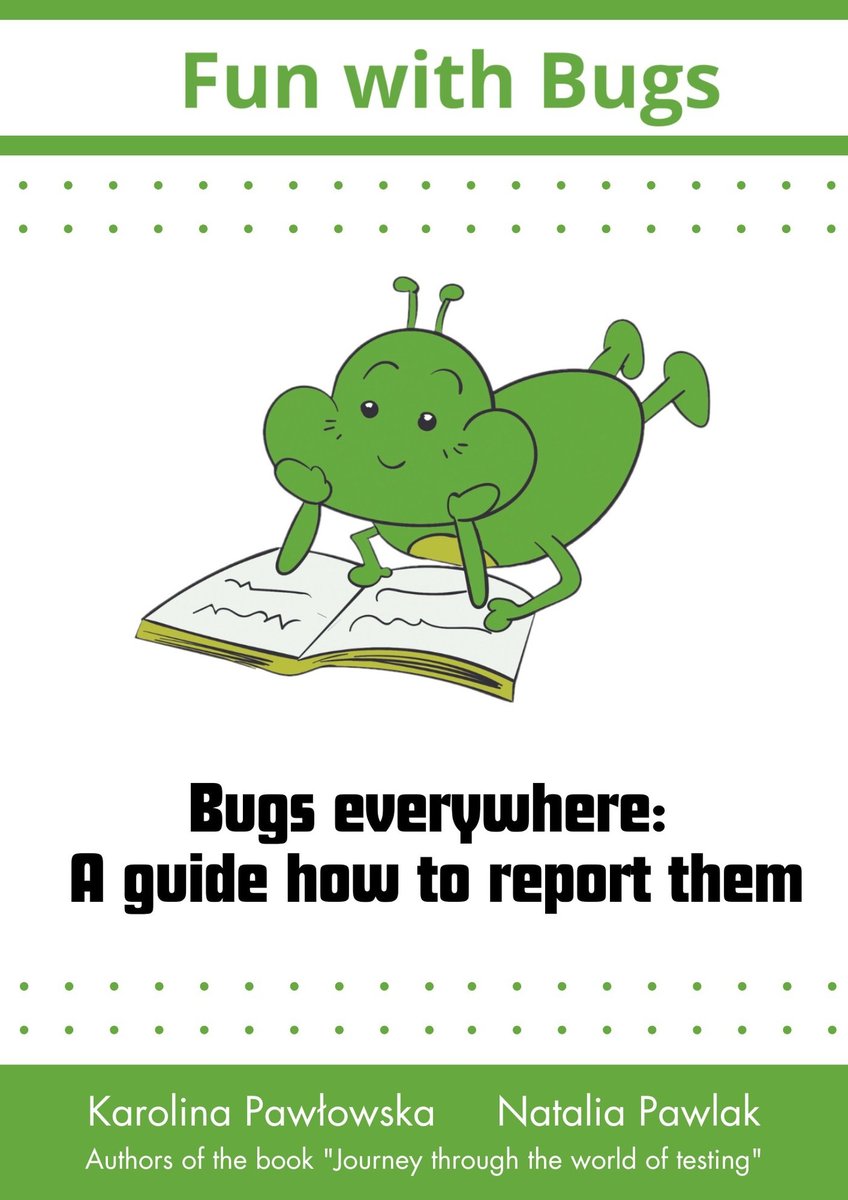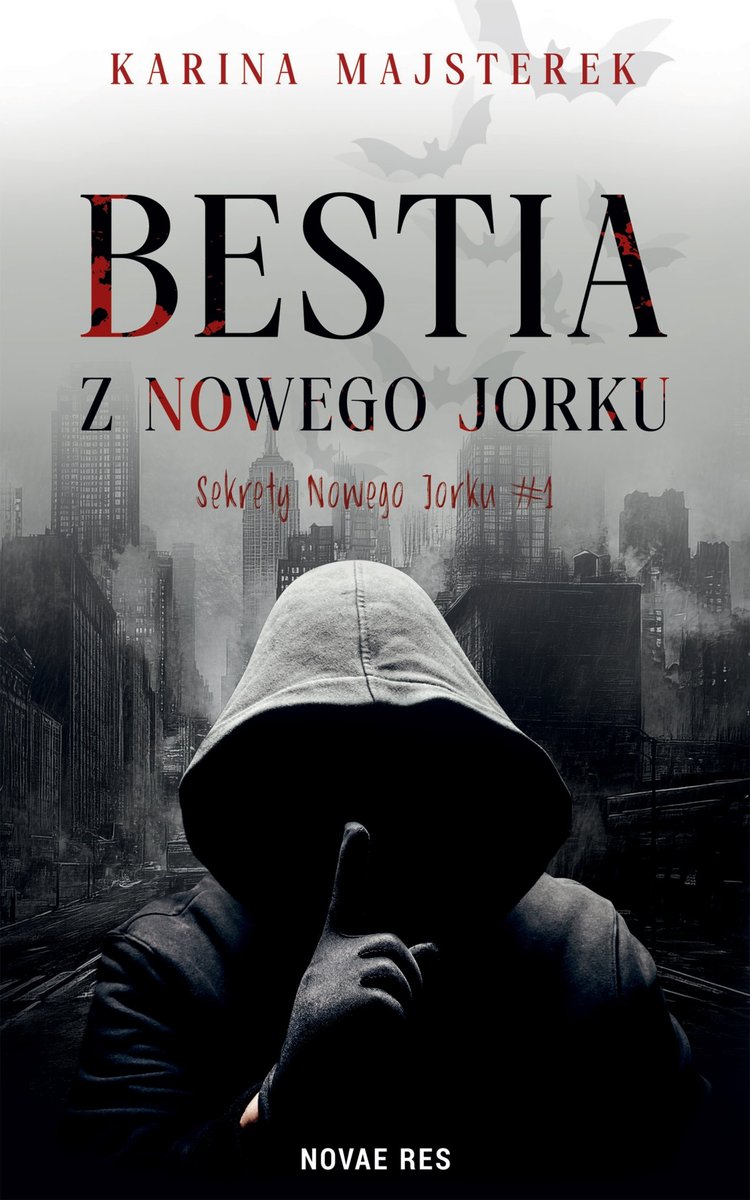Van Lustbader Eric - Miko
| Szczegóły | |
|---|---|
| Tytuł | Van Lustbader Eric - Miko |
| Rozszerzenie: | |
Van Lustbader Eric - Miko PDF - Pobierz:
Pobierz PDF
Van Lustbader Eric - Miko - podejrzyj 20 pierwszych stron:
Strona 1
Strona 2
Eric Van Lustbader - The Miko FOR VICTORIA with love... in all lands of
weather FOR MY FATHER with love to the human
encyclopedia ACKNOWLEDGEMENTS No character in The Miko bears the slightest
resemblance to any actual person, living or dead, save those mentioned as
obvious historical figures. Though MITI is real, and though its power and role
Page 1
in the development of the postwar Japanese economy have been accurately
Strona 3
portrayed here, certain specific events at the time of its formation as well
as the ministers depicted are purely a product of the author's
imagination. Thanks are due to the following people: Roni Neuer and Herb
Libertson, the Ronin Gallery; Richard Bush, the Asia Society, Washington,
D.C., for unlocking the riddle of the Wu-Shing; Charlotte Brenneis, assistant
to the president, Asia Society, New York City; Nancy Lerner; All at the
Grill & Bar, Kapalua, for helping to make work so pleasurable; HM, for
editorial assistance; VSL, for editorial assistance and spiritual sustenance;
and, especially, Tomomi Seki, the Ronin Gallery, for translations, assistance
in all things Japanese time and again, not only for the The Miko but for The
Ninja as well. Domo arigato, Seki-san. Tsugi-no ma-no tomoshi mo kiete
yo-samu kana The next room's light that too goes out, and now— the chill of
night Shiki (1867-1902) MRS. DARLING: George, we must keep Nona. I will
tell you why. My dear, when I came into this room to-night I saw a face at the
window. ]. M. Barrie, Peter Pan NARA PREFECTURE, JAPAN SPRING,
PRESENT Masashigi Kusunoki, the sensei of this dojo, was making tea. He knelt
on the reed tatami; his kimono, light gray on dark gray, swirled around him as
if he were the eye of a great dark whirlpool. He poured steaming hot water
into an earthen cup and, as he took up the reed whisk to make the pale green
froth, the form of Tsutsumu shadowed the open doorway. Beyond his bent body,
the polished wooden floor on the dojo stretched away, gleaming and
perfect. Kusunoki had his back to the doorway. He faced the edge of the shoji
screen and the large window through which could be seen the cherry trees in
full blossom, clouds come to walk the earth, marching up the densely wooded
Strona 4
slopes of Yoshino, their oblique branches as green as the hills beyond,
covered with ancient moss. The scent of cedar was very strong now, as it
almost always was in this section of Nara prefecture, save during those few
weeks of winter when the snow lay heavy through the ridges and rises of the
terrain. Kusunoki never tired of that view. It was steeped in the history of
Japan. It was here that Minamoto no Yoshitsune sought the shelter of these
fortresslike mountains in order to defeat the treachery of the Shogun, his
brother; it was here that the great doomed Emperor Go-Daigo assembled his
troops and ended his exile, beginning his attempt to return to the throne;
here, too, where Shugendo developed, the way of mountain ascetics, a peculiar
fusion of Buddhism and Shinto. Mount Omine was out there and on its slopes
congregated the yamabushi, the wandering, self-mortifying adherents of this
syncretic religion. He looked now at the tea, its color lightening as the
spume rose, and he saw all there was to see beyond that thin pane of
glass. Behind him, Tsutsumu was about to announce himself softly but, seeing
the sensei kneeling, unaware, froze his tongue. For a long time he
contemplated the figure on the tatami, and as he did so his muscles began to
lose their relaxedness. He had been alert; now he was ready. His mind sought
the many pathways toward victory while his eyes drank in the utter stillness
in the other. The hands must be moving, Tsutsumu told himself, because I know
he is preparing the tea... yet he might as well be a statue for all I can see
of it. He knew the time to be right and, unbidden, he rose, unfurling himself
like a sail before the wind. Taking two swift, silent strides, he crossed the
threshold and was within striking distance. His body torqued with the first
Strona 5
onset of intrinsic energy. At that instant, Kusunoki turned and, extending
the hot cup of tea, said, "It is always an honor to invite a pupil so quick to
learn into my study." His eyes locked onto Tsutsumu, and the student felt as
if he had hit against an invisible, impenetrable wall. All the fire of the
energy he had banked for so long, now at last turned loose, was stifled, held
momentarily in thrall, then dissipated. Tsutsumu shivered involuntarily. He
blinked as an owl might in daylight. He felt intensely vulnerable without that
which had always been his. The sensei was smiling pleasantly. "Come," he
said, and Tsutsumu saw that another cup of tea had somehow materialized. "Let
us drink together... to show respect and our mutual good intentions." The
student smiled awkwardly and, shakily, sat on the tatami facing Kusunoki.
Page 2
Between them was a break in the reed mats that was far more than an
architectural or an esthetic delineation. It was the space between host and
guest, always observed. Tsutsumu took the cup and, holding it carefully and
correctly in both hands, prepared to drink. The warmth of the tea rushed into
his palms. He bowed to his sensei, touched the curved rim of the cup to his
lips, and drank the intensely bitter beverage. It was very good, and he closed
his eyes for an instant, forgetting where he was and, even, who he was, to the
extent that that was possible. He tasted the earth of Japan and with it all
things Japanese. History and legend, honor and courage, the weight of kami,
hovering. And, above all, duty. Giri. Then his eyes opened and all was as it
had been before. He felt again the uncomfortableness of being so far from
home. He was from the north and Nara was an alien place to him; he had never
Strona 6
liked it here. Yet he had come and had stayed for two long years. Giri. "Tell
me," Kusunoki said, "what is the first thing we assess in combat?" "Our
opponent," Tsutsumu said immediately. "The exchange of attitude and intention
tells us where we are and how we are to proceed." "Indeed," Kusunoki said, as
if this were a new concept to him and he was mulling it over in his mind. "So
we think of victory." "No," the student said. "We concern ourselves with not
being defeated." The sensei looked at him with his hard black eyes that
seemed ripped from a hawk's fierce face. "Good," he said at last. "Very good,
indeed." Tsutsumu, sipping his tea slowly, wondered what this was all about.
Words and more words. The sensei was asking him questions to which any good
pupil must know the answers. Be careful, he cautioned himself, remembering the
instantaneous dissolution of his attacking force. Be on guard. "So here we
equate defeat with the end of life." The student nodded. "In hand-to-hand we
are on the death ground, as Sun Tzu has written. We must fight, always." Now
Kusunoki allowed a full smile. "But Sun Tzu has also written, 'To subdue the
enemy without fighting shows the highest level of skill. Thus, what is supreme
is to attack the enemy's strategy.'" "Pardon me, sensei, but it seems to me
Sun Tzu was speaking solely about war in that instance." "Well," Kusunoki
said evenly, "isn't that what we are also talking about?" Tsutsumu felt his
heart skip a beat and it was with a great personal effort that he kept himself
calm. "War? Forgive me, sensei, but I do not understand." Kusunoki's face was
benign as he thought, And Sun Tzu also wrote that those skilled in war can
make themselves invincible but cannot cause an enemy to be vulnerable. "There
are many faces war may take on, many guises. Is this not so?" "It is,
Strona 7
sensei," Tsutsumu said, his pulse in his throat. "We can ask, what war can be
made here"—his arm drifted through the air like a cloud, describing an arc
toward the wonder and peace of the wooded hillsides visible through the
window— "in Yoshino where the history of Japan lives and thrives. One might
think war an outmoded concept here among the cherry trees and the
cedars." His great black eyes fixed on Tsutsumu, and the pupil felt a muscle
along his inner thigh begin to tremble. "Yet war has come to this indomitable
fortress of nature. And thus it must be dealt with." Now Tsutsumu was truly
terrified. This was no ordinary invitation to sit at the sensei's feet and sip
tea while speaking of mundane matters, the substance of daily lessons. "There
is a traitor here in Yoshino," Kusunoki said. "What?"' "Yes, it is true."
Kusunoki nodded his head sadly. "You are the first I have spoken to about it.
I observe you in class. You are quick, quick and intelligent. Now you will
work with me on this matter. You will spy for me among the students. You will
begin now. Have you observed anything out of the ordinary that might help us
in identifying the spy?" Tsutsumu thought furiously. He was not unaware of
the amazing opportunity being afforded him and was immensely grateful for it.
He felt as if a great weight had been taken off his chest. Now he must make
the most of this opening. "I seem to remember," he began. "Yes, yes. There is
something. The woman"— he used a most unflattering inflection—"has been seen
here late into the evening hours." "What has she been doing?" There was no
need to name her. The dojo contained only one woman—a choice of the sensei
that was not popular with his pupils though none dared voice their displeasure
where he could hear. Nevertheless, he knew about it. Tsutsumu shrugged. "Who
Strona 8
Page 3
knows, sensei? Certainly she was not practicing." "I see." Kusunoki seemed
engulfed in thought. Tsutsumu sought to press his advantage. "Of course there
has been much talk lately concerning her; a great deal of talk." "She is not
liked." "No, sensei" Tsutsumu confirmed, "most of the students do not feel
she has a place here within the sanctity of the dojo. It goes against
tradition, they feel. This kind of...ah...training should not be open to a
woman, they believe." The student bowed his head as if reluctant to go on.
"Forgive me, sensei, but there has even been some talk that her presence here
was the reason that you left your high position within the Gyokku ryu. They
say she came to you there, that on her behalf you went to the council of jonin
and sought their vote for her entry into the ryu. They say it is because you
could not muster enough votes within your own council that you left." His head
raised. "All because of her." Invincibility lies in the defense, Kusunoki
thought. The possibility of victory is attack. To his pupil, he said, "It is
true that I was once jonin in the Gyokku ryu; that much is common knowledge.
But the reasons for my departure are my own; no one else knows them, not even
the other members of the council. My great-great-grandfather was one of the
founders of Gyokku; it took much thought on my part to make the decision. It
took much time." "I understand, sensei," Tsutsumu said, thinking that what he
had just been told was an utter lie. He was certain within his own heart that
Kusunoki had, indeed, jeopardized his entire career for this one woman.
Inexplicably. "Good." Kusunoki nodded. "I thought you might." The black eyes
closed for a moment, and the student breathed an inaudible sigh of relief. He
Strona 9
felt a trickle of sweat creeping like an insect down the indentation of his
spine and he struggled to keep his body still. "Perhaps I have been wrong
about her, after all," the sensei said. With a great deal of elation, Tsutsumu
recognized the sadness in the other's voice. "If what you have gleaned is
indeed the truth, then we must deal with her swiftly and
ruthlessly." Tsutsumu's head swung around at the mention of the word we.
"Yes, sensei," he said, thinking, Softly, softly now, knowing he was moving
in, trying to keep his jubilation in check. "Any way I may serve you is an
honor. That is why I first came here, and I have not wavered in that
resolve." Kusunoki nodded. "It is as I suspected. There are few one can trust
even in this day and age. When I ask for your opinions now, when I ask for you
to take action, both of these must be given willingly and
faithfully." Tsutsumu could barely contain his euphoria; outwardly he showed
nothing. "You have but to ask me," he said. "Muhon-nin" Kusunoki said,
leaning forward, "this is all I ask." The word traitor had only begun to
register on Tsutsumu's brain when he felt the incredible pain engulf him and,
looking down, saw the sensei's hand gripping him just below the collarbone. It
was not a strike he had yet mastered and, staring bewil-deredly at it, trying
to fathom its secrets, he died, a froth of pink saliva bubbling between his
trembling lips. Kusunoki, watching life escape like a puff of invisible
smoke, took his hand away from the corpse. Without his support, it swayed and
fell to one side, the pink drool staining the tatami on which Tsutsumu
knelt. Behind the sensei a shadow appeared to move behind the shoji and then
a figure emerged. Hearing the pad of bare feet, the sensei said, "You heard it
Strona 10
all?" "Yes. You were correct all along. He was the traitor." The voice was
light, pleasingly modulated. Female. She wore a dark brown kimono, designed
with gray plovers within circles of black. Her gleaming black hair was drawn
tightly back from her face. Kusunoki did not turn around at her silent
approach. Instead, he was staring at the rice-paper scroll hung in a niche
along one bare wall. Just below it was an earthenware bud vase in which he had
placed one perfect day lily. At dawn this morning, as he did every morning of
his adult life, he had gone walking in the wilderness, strolling the slopes,
through glades still dark and misty with remnants of the night, past rushing
streams etched with the last silvered thorns of moonlight, in search of this
one flower that would reflect its mood of peace and contemplation all through
the day. Plucking it carefully, he had made his way back to the precincts of
his dojo. On the rice-paper scroll a Zen master of the eighteenth century had
Page 4
written in flowing characters: "Rock and wind/only they remain/through
generations." "But you allowed him to get so close to you." Kusunoki smiled
up at her and said, "I allowed him the luxury of cutting his own throat. That
is all." He watched her as she sank down on her knees. He was conscious of the
fact that she chose a spot near his right hand and not directly in front of
him. "Often, times dictate that one becomes more intimate with one's enemies
than with friends. This is a necessary lesson of life; 1 urge you to listen
well. Friends engender obligations and obligations entangle life. Always
remember: complication breeds desperation." "But what is life without
obligation?" Kusunoki smiled. "That is an enigma even sensei may not
Strona 11
unravel." He nodded toward the fallen form. "Now we must find the source from
which this muhon-nin sprang." "Is that so important?" Her head turned
slightly so that the flat curve of her cheek was outlined in the soft light
filtered by the shoji. "He has been neutralized. We should return to our
work." "You are not yet privileged to all that goes on here," Kusunoki said
seriously. "The martial and the military arts are but two. It is essential
that we discover the source of the infiltration." "You should not have
destroyed him so quickly then." The sensei closed his eyes. "Ah, rash youth!"
The voice was soft, almost gentle, but when the eyes snapped open the female
felt her insides fluttering involuntarily, drilled by that basilisk gaze. "He
was professional. You will learn someday not to waste valuable time on men
like him. They must be dispatched as quickly and as efficiently as possible.
They are dangerous—highly volatile. And they will not talk. "Therefore we go
onward." His hands folded into his lap. "You must return to the source... his
source. The people who sent him, who trained him, represent a very great
threat to Japan." He paused, his nostrils quivering as if he sensed some
telltale vibration. When he spoke again, his voice had lost its hard edge; his
eyelids drooped. "There is more hot water. Tea is waiting." Obediently she
went past him, grasping the tea pot and pouring while the light went out of
the sky and purple clouds obscured the terraced mountains. Carefully she
brought the tiny cups toward him on a black lacquered tray; a small flock of
golden herons lifting off from racing water painted there. Delicately, she set
the tray down, began to use the whisk with practiced strokes. Her wa—her
harmony— was very strong, and this was what Kusunoki felt engulfing him. At
Strona 12
that moment he was very proud of what he had helped to create. Six, seven,
eight, the female turned the whisk, creating the pale green froth. On the
tenth stroke her delicate fingers dropped the whisk and in the same motion
were inside the wide sleeve of her kimono. Reversing the motion the short,
perfectly honed steel blade flashed upward, biting into the back of Kusunoki's
neck. Either her strength was at such a level or the blade was so superb that,
seemingly without effort, the steel bit through flesh and bone, severing the
spinal column. In a grotesque gesture, the head came forward and down, hanging
only by the thin length of skin at the neck, as if the sensei was deep in
meditational prayer. Then crimson blood spurted upward from the severed
arteries, fountaining the room, spattering the tatami where they both knelt.
The sensei's torso jerked spasmodically, its legs tangling beneath it as it
tried to leap forward like a frog. The female knelt rooted to the spot. Her
eyes never left the body of her teacher. Once, when he lay on his side and one
leg spasmed a last time, she felt something inside herself trembling like a
leaf before a rising wind and she felt one tear lying hotly along the arch of
her cheek. Then she hardened her heart, strengthened her will, and dammed up
her emotions. With that, elation filled her. It works, she thought, feeling
her heart thundering within her rib cage. Jahd. Without it, she would never
have been able to mask her intent from him, she understood that quite
clearly. As she stared down at her handiwork, she thought, It's nothing
personal; nothing like what that bastard muhon-nin Tsutsumu had in mind. I am
no traitor. But I had to prove myself. I had to know. And therefore I had to
take on the best. She got up and, moving like a wraith across the tatami,
Strona 13
avoiding the spattered stains that had already begun to seep away across the
floor onto other tatami, went to him. You were the best, she thought, staring
Page 5
down at her mentor. Now I am. She bent and wiped the blood—his blood—from her
weapon. It left a long scar on the fabric of his kimono. The last thing she
did there was to strip him and reverently fold the precious garment as if it
were the national flag. Soon it disappeared into an inner pocket. Then she
was gone; and with her absence came the rain. BOOK ONE SHIH [Force,
influence, authority, energy] NEW YORK/TOKYO/HOKKAIDQ SPRING,
PRESENT Drowsing, Justine Tomkin became aware of the nightblack shadow that
slowly pierced the sunlight like the blade of a sword. Her mouth opened wide
and she tried to scream as she saw the face and recognized Saigo: the images
of blood and carnage, a deathhunt too frightening to contemplate. The odor of
the grave had pervaded this once peaceful room in her father's house on Long
Island so full of childhood memories: of a Teddy bear with one eye missing and
a plaid gingham giraffe. Her powerful scream was muffled by the thick wind of
Saigo's passage, as if he could control all God's elements with a wave of his
hand. His torso expanded, extending through the light streaming down through
the great glass dome in the ceiling, an opalescent mist rising about him as if
his connection to the earth was not meant for her eyes. He bent over her
prostrate form and while her mind screamed, Wake up! Wake up! he slowly began
to work his magic on her, the icy menace in his eyes as dead as stones somehow
transferring itself into her heart. She felt the horror squirming there like
a palmful of live worms. An unholy bond was forming which she was powerless to
Strona 14
deflect. Now she was part of him, she would do his bidding like a servant,
take up his fallen katana and slay his enemy for him. She felt the cool haft
of the heavy katana beneath her curling fingers as she drew it upward off the
floor. She wielded it just as Saigo would have had he not been dead. And
before her stood Nicholas, his vulnerable back to her. She raised the katana,
its shadow already beginning to slice through the sunlight striking his spine.
Nicholas, my one and only love. Her mind whirled in a sick fury and her last
thought before she began the lethal downward strike was not her own: Ninja,
betrayer, this is your death!... Justine jerked awake. She was in a sweat.
Her heart was thumping uncomfortably, as loudly as a blacksmith strikes his
anvil. Slowly, she ran a shaking hand through her damp hair, pulling it back,
away from her eyes. Then, with a great indrawn breath that halfway through
turned into a wracking shudder, she clamped both arms about her body and began
to rock back and forth as she had when she had been a child, frightened by
dreams welling up from the pitch blackness of the night. Blindly she reached
out to the empty spot beside her in the large double bed, and fear touched her
heart anew. It was not the terror of her own private nightmare which reared up
at her. This was a new fright and she twisted, grabbing up a pillow from
beside her where normally Nicholas would have been and, holding it tightly to
her breast, squeezed it as if this gesture might bring him back to her arms,
and the safety of America. For Nicholas was on the other side of the Pacific
and Justine was quite certain now: the fear she now felt was for him. What was
happening in Japan? What was he doing at this moment? And what danger was
amassing itself against him? In a moment she lunged for the phone, a little
Strona 15
cry filling the silence of the room. "Ladies and gentlemen, we are beginning
our descent into Narita Airport. Please make sure your seat back is in the
upright position and that your tray table is closed and secured. All hand
luggage must be stowed under the seat in front of you. Welcome to Tokyo,
Japan." While the unseen flight attendant repeated her short speech in
Japanese, Nicholas Linnear opened his eyes. He had been dreaming of Justine,
thinking of yesterday, when they had driven out of the city to get away, as
they often did, from the pressurized life they led within the steel and smoked
glass canyons of Manhattan. Outside their house in West Bay Bridge they had
doffed shoes and socks and despite the early spring chill loped across the
white sand. Running down to the sea after her, the cerulean waves cutting off
her feet and ankles in violent foam. Catching up with her, long, dark hair in
his face as he turned her around, linking them, a softly feathered wing coming
down at the close of night. His hard burnished arm around her, pulling her to
him, the feel of her like liquid against flesh heated by the sun and
Page 6
more. Whisper of the salt wind, "Oh, Nick, I don't think I've ever been happy
before; not ever. Because of you I have no more sadness in me." She was
voicing the knowledge that he had saved her from the many demons that life
held in its fisted claw, not the least of which was her own masochistic self;
an ego robbed—so she said—by the domineering specter of her father. She put
her head on his shoulder, kissing the side of his neck. "I wish you didn't
have to go. I wish we could be here in the surf together forever." "We'd turn
blue." He laughed, not wanting to catch her abruptly melancholy mood. He felt
Strona 16
his love for her like a gently purling river in the night, hidden from sight
yet present nonetheless. "Anyway, don't you think it's better that we're both
so busy before the wedding? No time to get cold feet and back out." He was
joking again but she lifted her head and he stared into her extraordinary
eyes, highly intelligent yet possessing an odd kind of naivete he had found so
alluring when he had first met her. He still did. He watched the several
crimson motes floating like a hint of her soul in the midst of her left iris.
Her eyes were hazel, that day more green than brown, and he found himself
feeling grateful mat the harrowing events of the past year had not altered the
essence of her. For through those eyes he could still see her heart. "Do you
ever dream of it?" he asked. "Do you ever find yourself back in the house with
the dai-katana in your hands; with Saigo in your mind?" "You took all that he
did—the strange kind of hypnosis— away," she said. "That's what you told
me." He nodded. "That's what I did." "Well then." She took his hand and led
him from the chilly curling wavelets up above the high-tide mark, strewn with
the dark wrack of sea grape and odd bits of ashy wood, as perfectly smooth as
stones. She turned her face up toward the sun. "I'm glad winter's over; I'm
happy to be out here again with everything returning to life." "Justine," he
said seriously, "I just wanted to know whether there had been any—" He broke
off, searching for an English equivalent to the Japanese thought. "Any echoes
of the incident. After all, Saigo programmed you to kill me with my own
sword. You never speak of it." "Why should I?" The light turned her eyes
dark, concealing all their delicate colors. "There's nothing to say." There
was silence for a time, and they were engulfed by the rhythmic suck and pull
Strona 17
of the sea along whose edge they had begun to walk again. Near the flat
horizon a trawler hung as if suspended in a gulf of piercing blue. She was
looking out there, as if the ocean's expanse contained within it her future.
"I've always known that life isn't safe. But up until the time I met you, I
had no reason to care one way or another. It's no secret that I was once as
self-destructive as my sister is." Her eyes broke away from the glitter of the
horizon. She stared down at her laced fingers. "I wish to God it had never
happened. But, oh, it did. He got hold of me. It's like when I had chicken pox
as a kid. It was so bad I almost died; it left scars. But I survived. I'll
survive now." Her head lifted. "I must survive, you see, because there's us to
think about." Nicholas had stared into her eyes. Was she keeping something
from him? He could not say, and he did not know why it should worry him. She
laughed suddenly, her face becoming that of a college girl, innocent and
carefree, the light dusting of freckles over her creamy skin catching the
warming sunlight. She had a pure laugh, untainted by sarcasm or cynicism.
There were no danger signs in it as there were in many people. "I won't have
you here beside me tomorrow," she said, "so let's make the most of today." She
kissed him tenderly. "Is that very Oriental?" He laughed. "I think it is,
yes." Her long artist's fingers traced the line of his jaw, pausing at last
to touch the tender flesh of his lips. "You're more dear to me than I thought
anyone could ever be." "Justine—" "If you'd travel to the ends of the earth
I'd find you again. That sounds like the unrealistic statement of a little
girl, but I mean it." To his astonishment, he saw that she did. And he saw in
her eyes at that moment something he had never seen there before. He
Strona 18
recognized the determination of the samurai woman that he had encountered
years ago in his mother and aunt. It was a peculiar combination of fierceness
and loyalty that he thought nearly impossible for the Occidental spirit to
attain. He was warmed by how proud of her he felt. He smiled. "I'll only be
Page 7
gone for a short time. Hopefully no more than a month. I'll make sure you
don't have to come after me." Her face had turned serious. "It's no joke,
Nick. Japan is at the ends of the earth, as far as I'm concerned. That
country's terribly alien. Anywhere in Europe I may be somewhat of a foreigner
but still and all I can trace my roots back there. There's at least some
feeling of belonging. Japan's as opaque as a stone. It frightens me." "I'm
half Oriental," he said lightly. "Do I frighten you?" "I think, yes, at times
you used to. But not so much now." Her arms slid around him. "Oh, Nick,
everything would be perfect if only you weren't going." He held her tightly,
wordlessly. He wanted to say that he'd never let her go but that would have
been a lie because in less than twenty-four hours he would do just that as he
boarded the plane bound for Tokyo. Too, his Eastern side—and his training—
made him a private man, inward directed, the enigma of the blank wall.
Nicholas suspected that his father, the Colonel, had been much the same way
though he had been fully Occidental. Both father and son had secrets even from
the women they loved the most in life. He took a deep breath now, felt the
change in pressure, the ozoned air, so thin and dry it clung to the back of
the nose. The 747-SP was banking to the left in a slow, lazy arc, chasing the
streaking cloud layer until pale green fields, striped with perfectly
Strona 19
regimented furrows, began to appear. Then, in the distance, the snow-capped
crown of Fuji-yama, majestic and immutable. He was home again. Then they were
into the heavy smog layer, lying like a pall over a festive party, drifting in
an ever-widening circle from the intensely industrialized areas of the
swarming metropolis. "Christ," the stocky-muscled man beside him said,
craning his neck for a better look, "I should've brought my goddamned gas
mask." A pudgy finger stabbed out at what lay beyond the Perspex window.
"They've got an inversion layer worse than the San Fernando Valley." His
lined, aggressive face was absorbed in the disappearance of the rising
landscape outside. He had the eyes, Nicholas thought, of a seasoned Roman
general, canny and weary at the same time. Both were a result of hard-fought
experience, battles on two arenas, the huns in front and the political
infighting behind. The man's hair was short cropped, a gunmetal gray; he was
dressed in a handmade lightweight business suit of a conservative cut. He was
a man who over the years had become accustomed to a measured degree of luxury,
but the twist of his nose, the thickness of the lips indicated that such had
not always been the case. He had not been born to money, Raphael Tomkin,
millionaire industrialist for whom Nicholas now worked. He was the man whom
Saigo had been paid to kill; and though Nicholas had protected him, defeating
Saigo, this was the same man who, Nicholas was certain, had ordered the death
of Detective Lieutenant Lew Croaker, Nicholas' best friend. Nicholas watched
the profile of Tomkin's powerful face without seeming to. American power,
Nicholas had come to learn, was often merely skin deep, and for him to incise
beneath that layer to the soft interior was not difficult.'But Tomkin was
Strona 20
atypical of his fellow board chairmen. His wa was very strong indeed, proof of
his inner determination and rock solidness. This interested Nicholas
intensely because his vow to himself and to the kami of his dead friend was to
gain access to the interior of this man and, once having possession of that
knowledge, sow the seeds of his slow destruction. He recalled his thoughts on
learning that Tomkin had ordered Croaker's seemingly accidental death in a car
crash just outside Key West. Croaker had been there on his own time, and only
Nicholas also knew that he had been running down the one solid lead in the
Angela Didion homicide. She had been a high-fashion model who had once been
Raphael Tomkin's mistress. A modern rendering of a well-known tactic of
Ieyasu Toku-gawa, greatest of all of Japan's Shogun, whose family ruled for
more than a thousand years, keeping tradition alive, safe from dilution from
the West: To come to know your enemy, first you must become his friend. And
once you become his friend, all his defenses come down. Then can you choose
the most fitting method of his demise. Nicholas' vow of revenge had led him,
despite Justine's fervent arguments, to accept Tomkin's offer of employment a
year ago. And from the first day on the job, all their energies had been
Page 8
directed toward this moment. Tomkin had been brewing this proposed merger of
one of his divisions with that of one of Sato Petrochemicals' kobun. Any deal
with the Japanese was a difficult enough task, but this kind of complex merger
of two highly sophisticated entities was utterly exhausting. Tomkin had
admitted that he needed help desperately. And who better than Nicholas
Linnear, half-Oriental, born and raised in Japan, to render that










